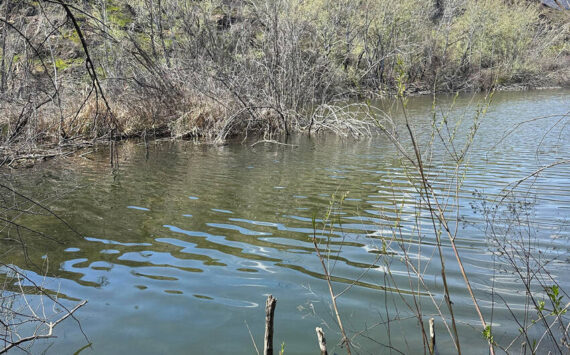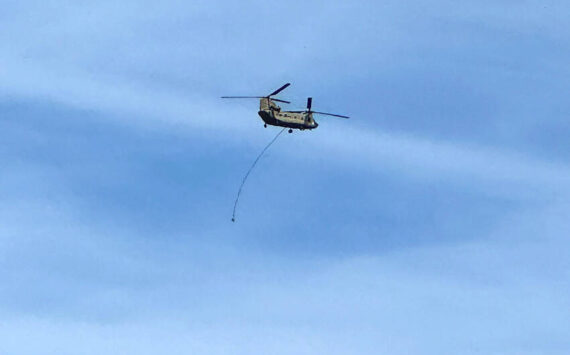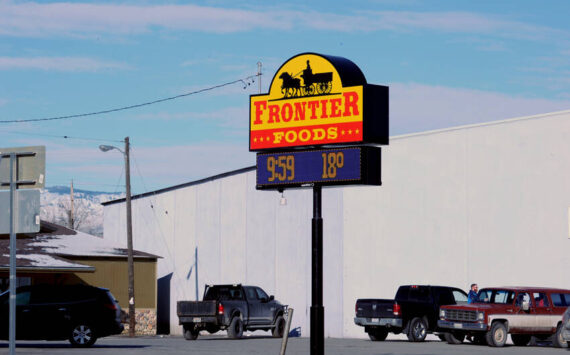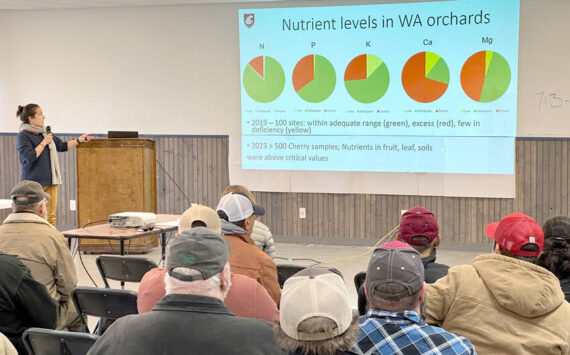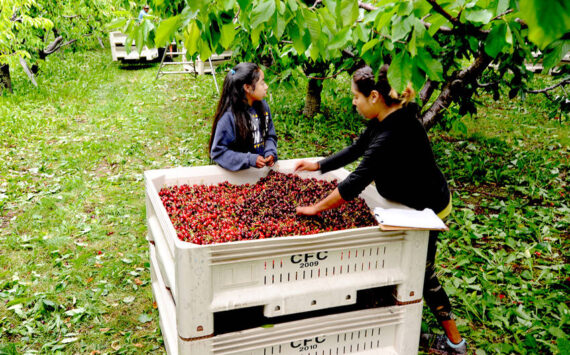SPOKANE – Tim King is thinking of locating a canola oilpress in Oroville to process some of the millions of tons of seeds produced inCanada each year.
King recently came to Oroville and met with members of cityand county economic development, representatives of Rail America which runs theCascade and Columbia River short rail line and others interested in economicdevelopment. He also met with Robin Stice, who with her husband Pat has aworking farm, as well as Eden Valley Guest Ranch.
As King envisions it, Oroville, it’s heavy haul corridor,proximity to the Canadian border and railhead, combine to make a great locationfor a press that would extract oil and meal from canola seeds. There are 13 to14 million acres planted with canola seeds in Canada, mostly in Alberta. Over10 million metric tons of the seeds are produced in Canada each year. Thesurplus seeds, those that aren’t used in Canada are stored or sold overseas.Normally the surplus seeds are trucked from Alberta to Vancouver, B.C. foroverseas shipment.
“Over 50 percent of the seeds are surplus to what they cancrush. That means approximately five million tons of raw seeds are sold on tothe market, but the market is changing as China and other places are beginningto grow their own,” King said.
King feels the concept of trucking the Canadian seeds toOroville, using its heavy haul corridor to the railhead, would bringopportunities to both the growers and buyers. He says the seeds are crushed andthe oil is extracted for use in healthier cooking and a number of otherproducts – including biodiesel, which is normal petroleum-based diesel mixedwith two to 20 percent vegetable oil, like that gotten from canola seeds.Another product is food-grade oils and greases made for equipment used in the foodproduction industry.
“Currently a lot of the biodiesel being sold is made fromrecycled fry oil. Using canola oil is one way to make low-sulfur fuel just byadding two percent. By adding five percent you increase fuel economy andlongevity of engines because of its increased lubricity. If you add 20 percentyou optimize the lowering of carcinogens in the diesel and you optimize thefuel for cleaning up the environment.”
There are biodiesel plants currently operating in theregion, including a big 100 million gallon plant in Grays Harbor that was builtwith the hope of using palm oil from the Philippines. The supply problem haskept the plant from operating to capacity, but canola oil could easily be usedreplace palm oil at the plant. There is also a 10-15 million gallon plantproposed for Odessa.
King believes that crushing seeds from farmers in Canada andNorth Dakota would give local farmers a chance to switch over from wheat togrowing canola seeds, or at least put the plant in the farm’s crop rotation.The crop is well-known as a natural fumigant and can be used to get rid ofthings like mold in the soil, rather than relying on chemicals. The canola canbe used in rotation to help control crop disease and insects, he said.
“The seed produces a renewable, natural oil that can be usedfor everything from food, to biodiesel, otheralternative fuels, two-stroke oil, making plastics and fertilizers. And themeal can be used for high protein cattle feed,” said King.
The left over meal is prized as a highprotein feed for dairy and other cattle. In fact, it is so high in protein ithas to be mixed four to one with straw or hay. For one ton of meal five tons ofhigh-protein feed can be produced.
Yet another potential use is electricalgeneration from biodiesel, according to King.
King, grew up and lives in Spokane andused to work for the U.S. Department of Agriculture for over 20 years. He isfamiliar with the Oroville area and met with representatives from Zosel’sSawmill 10 years ago when they were looking at running a co-generator forproducing electricity.
To house his equipment, which he boughtwhen another mill upgraded, he would need nothing more than a metal buildinglocated near the railhead. He said existing buildings with a high roof wouldwork just as well. He said the plant would operate 24/7, but would be insulatedenough that it would be a fairly quite operation, at least from the outside ofthe building. He said such a plant could employ 20 to 25 people working fourshifts.
There could be further spin off jobscreated if someone wanted to refine the oil right here in Oroville, or make aplant to pelletize the meal for feed.
“The rail line has a potential forbringing in the grain and for sending out tankers with oil and grain cars withfeed to places like Yakima to be used for dairy cattle.
“Everyone wants to find the bad side ofsomething, the more I look at canola all I can find is the good stuff,” hesaid.
King will be attending a NorthwestWashington Economic Development meeting on July 14 where he has been asked tocome and talk about his ideas. He is also participating in the SustainableOroville Web site and more about canola oil and his business plan can be foundat www.sustainbleoroville.com.

